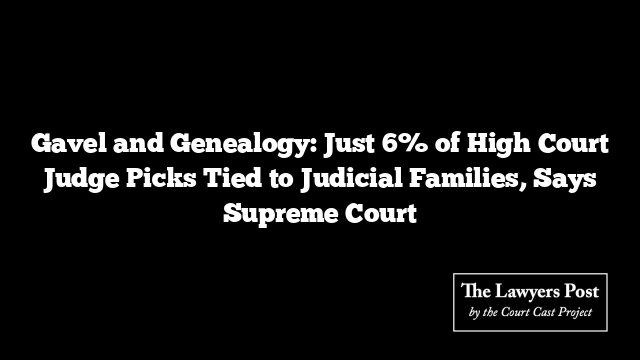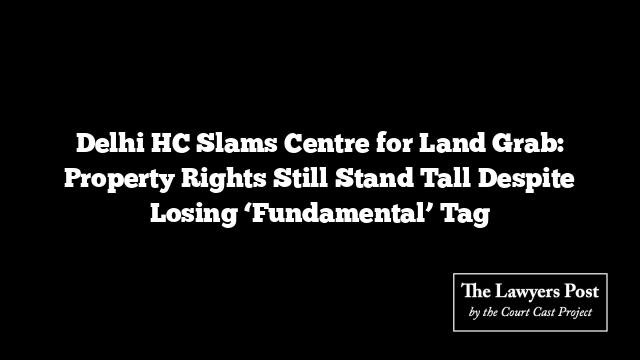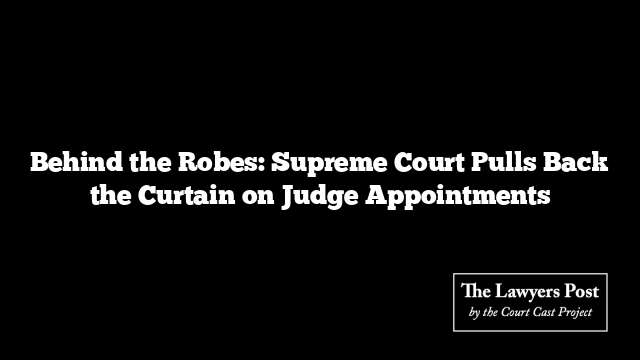In a quiet push for transparency, the Supreme Court has pulled back the curtain on its recent judicial recommendations — revealing that bloodlines haven’t been the dominant force behind appointments to India’s High Courts.
Out of the 221 candidates recommended for High Court judgeships over the last two and a half years, just 14 had family ties to sitting or former judges. That’s 6.3% — a figure that punches a hole in the long-standing whispers of nepotism being a gateway to the bench.
The government has already signed off on 13 of these 14 names. The lone exception? Advocate Rohit Kapoor, recommended for the Punjab and Haryana High Court, whose file is still waiting for a nod from the Centre. Kapoor’s judicial link: he’s the son-in-law of retired Justice Amar Dutt Sharma.
According to the top court, a candidate is considered “related” if they have a judge in the immediate or marital family — think parent, sibling, in-law. This fresh disclosure, according to the Court, is meant to keep the public “aware” of how appointments unfold.
Here’s how the numbers stack up:
Between November 9, 2022, and November 10, 2024, the High Court Collegium sent 303 names to the Supreme Court, then headed by Chief Justice DY Chandrachud. Out of these, 170 were approved — 12 of them with judicial relatives.
Under the current Chief Justice Sanjiv Khanna, from November 11, 2024, onward, 103 names were forwarded. The Collegium greenlit 51 — and just two had judiciary links.
Some of the notable appointees with legal lineage:
- Justice Bibhu Datta Guru, now at Chhattisgarh High Court, is the brother-in-law of Supreme Court Justice Prashant Kumar Mishra. The Collegium backed him in July 2024; the government cleared him in August. Justice Mishra wasn’t part of the Collegium deciding his relative’s fate.
- Justice Nupur Bhati, appointed to Rajasthan High Court in early 2023, shares the bench with her husband, Justice Pushpender Singh Bhati — the Court’s third-senior-most judge, on the bench since 2016.
- Justice Yogendra Kumar Purohit joined the Rajasthan High Court in 2023. He brings family ties aplenty: two of his brothers-in-law, Justices Manoj and Uma Shankar Vyas, serve on the same court.
- Justice Tejas Karia, cleared in 2024 after a six-month wait, hails from a prominent Gujarat judiciary family. His father, Justice Dhiren Govindji Karia, served on the state High Court, and his brother, Justice BD Karia, still does.
Despite these connections, the data speaks volumes: the vast majority of judicial picks had no family link to the bench. In a system often accused of being a closed circle, the statistics hint at at least a crack in the old order — and a small, if cautious, step toward meritocracy.





